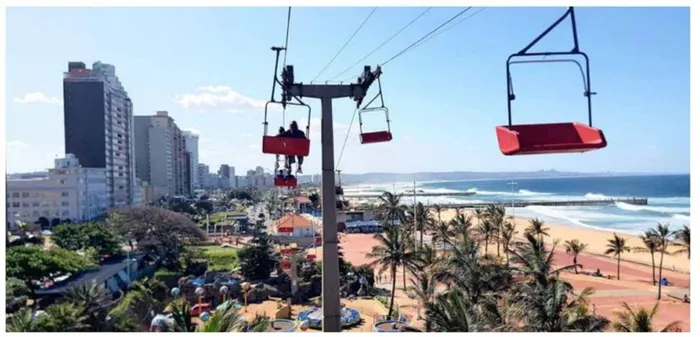Tourism welcomes level 3 relief

President Cyril Ramaphosa’s announcement this week that restaurants and other tourism-related businesses willl soon be permitted to open was celebrated by those in the industries but their struggle is far from over.
The shutdown of South Africa’s tourism and hospitality industries since March 26 has been devastating and the long-awaited reopening will not be a quick fix.
Some holiday-home owners have already converted their properties into long-term lets to try stave off financial ruin and many companies on all levels of the industry have been forced to close, says Brett Tungay, chairman of the Federated Hospitality Association of SA (Fedhasa) Coast. Some of these will not have the cash flow to restart.
“Most tourism properties are financially leveraged due to the high capital demands of the industry and are surviving by the grace of their lenders extending payment holidays on loans. But most of these grace periods have been for three months – April, May and June. The question now is whether the banks will extend these further.”
His calculations show that most companies in the tourism sector will show a 60% to 70% reduction in turnover for the 2020/2021 financial year, leading to “unprecedented losses”.
“For most, the only solution will be the government-backed term loans that are being facilitated through all the major banks but feedback from Fedhasa members is that the banks are still applying very stringent lending criteria, thereby cutting off many of the most desperate businesses from this lifeline.”
Tungay anticipates a return to normality only by the beginning of Q2 2021. He does, however, believe that travel patterns post-Covid will return to normal after a possible six-month reintegration period.
“The caveat to this, of course, is what financial damage the lockdown has caused, not only to our domestic economy but globally, and this will truly emerge only in the first quarter results of 2021.” For those businesses that cannot survive post-lockdown, the properties might need to be converted for non-tourism use.
“We have already seen the change on the small end of the market with many holiday house/Airbnb property owners looking for permanent tenants. We might also have larger properties in less lucrative areas, such as South Beach in Durban, converting to residential flats if accommodation demand does not return to previous levels.”
Addressing a commercial property webinar recently, FNB property economist John Loos said the industry most at risk at the moment was the hospitality industry, hardest hit by the long lockdown. Furthermore, people might not have much travel confidence after the lockdown.
“People will perhaps not be as willing to jump on a plane.” The demand-side pressures could also be around for a while, he says. “We have all been pushed into remote working which has partly eliminated the need to travel to other provinces and stay in hotels. A lot of business travel will not come back due to financial pressure on corporates.”
While hospitality consultant and Fedhasa Cape chairman Jeff Rosenberg agrees that the lockdown and people’s subsequently changed habits will have an impact on business travel, he hopes the opening of tourist attractions will eventually help get the domestic travel market back up and running. But this will take time.
“Christmas will have a very different feel this year and (those in the travel industry) will have to come up with very enticing packages for travel.” Under the new advanced alert level 3, conferencing will be permitted to reopen and Rosenberg says health and safety protocols will be manageable in plenary and break-away sessions. But he expects “a whole new dynamic”.
The exhibition market will be more difficult to manage and return only later. The conferencing market is also going to have to “think long and hard” about how to manage the challenges arising from the expected short-term decline in international conferences.
“I feel for those involved in conferencing. We have some very beautiful convention centres in South Africa but they need the volumes to go through them to make them viable,” he says.
Related Stories
Hotel sector doing well – until coronavirus hit
Related Topics: